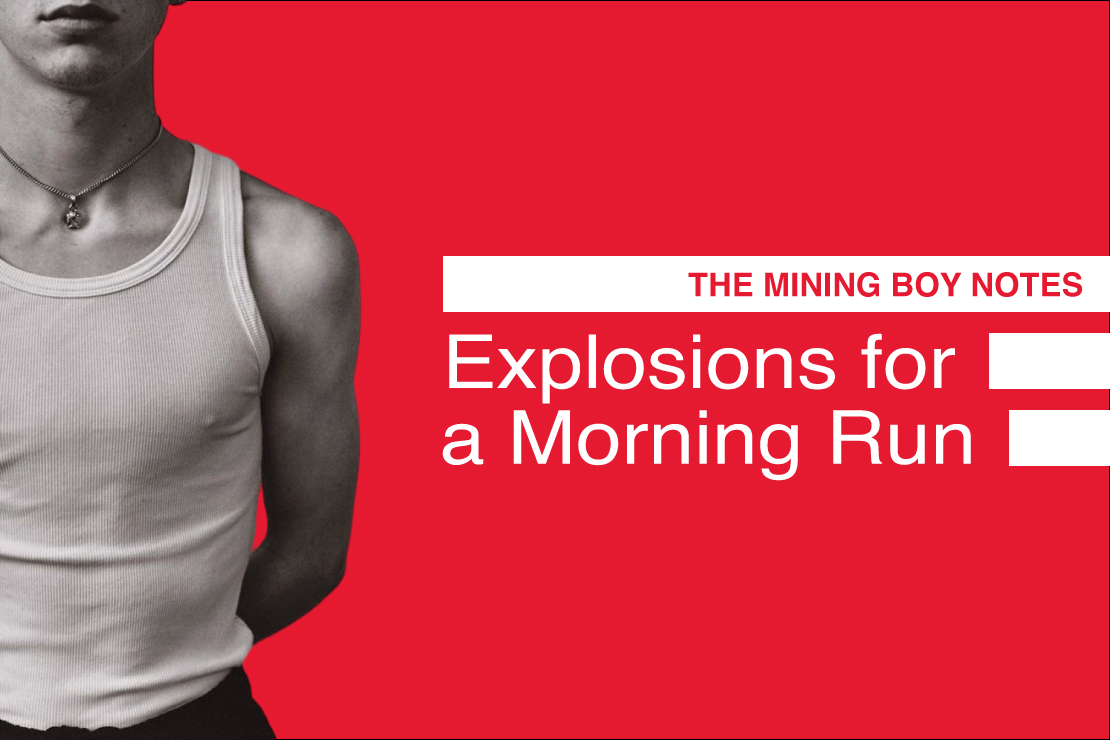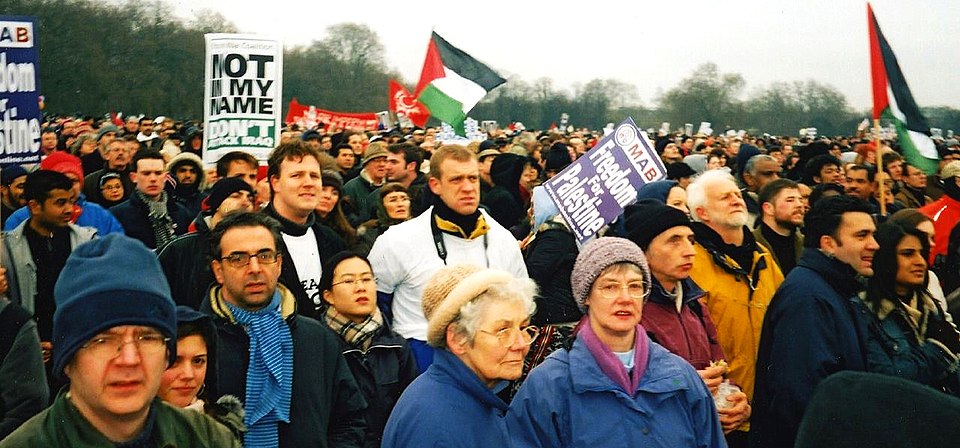In the summer of 2022, I still had my job. So, I woke up at 9:15 AM to get ready for a meeting at 9:30.
Normally, I don’t turn on my camera. In the past, I had to come up with excuses, but recently we got a 20-year-old analyst who makes decisions based on feelings. Surprisingly, the boss accepted his emotional instability as a reason not to turn on the camera, so soon I started using that reason too.
At 9:18, I was already standing naked in the shower.
At 9:21, my partner joined me.
At 9:26, we were brushing each other’s teeth and inexplicably laughing, splattering toothpaste foam everywhere.
At 9:29, as usual, I opened my laptop and within 2 minutes, I was in the meeting.
By 9:34, when the whole team was assembled, a siren sounded. It came from my end first, then arrived at colleagues in western Ukraine. Someone sighed in resignation, like before starting something tedious. Eventually, we decided to postpone the meeting and head for shelter.
The issue is that there are few shelters in Ukraine. Budget funds were allocated for their renovation and construction, but this initiative, too, ended in a corruption scandal.
During the siren, residents are expected to descend to the basements of their multi-story buildings mostly built in the Soviet Union. However, these are just basements, not proper shelters. Often there’s no electricity. Instead, there are rats, cobwebs, strange odors, and mold.
Old buildings have thick walls, making the basement potentially sturdy, but dust, dirt, and unsanitary conditions make staying there not only unpleasant but also hazardous. In new buildings, basements are still relatively clean, however, it’s well-known that new buildings are structurally unsound. Budgets for building houses shrink several times due to corruption before construction even begins. That’s why people have to choose between thick walls with unsanitary conditions or clean but unreliable basements.
Personally, I preferred to hide not in basements, but in a deep underground parking garage located 10 minutes away from my home. 10 minutes! The siren meant to me not only that missiles were flying our way but also that it was time to prepare for a sprint. I’m not joking – I actually bought running shoes from Decathlon to better my survival chances.
But as the war dragged on, I found myself running away from the police more often than from missiles. Why even leave the house then? At the beginning of the war I instinctively reacted to the siren and immediately sought shelter. By summer I often didn’t react at all, just sighed in resignation like my colleague at the meeting.
It’s easy to be fatalistic when you have nothing to lose. In post-Soviet countries, love often resides in someone else and rarely reaches you directly. That’s why you start valuing yourself only when you value someone else. It’s almost like a duty to appreciate them, so as not to accidentally upset them with news of your own poor health.
Siren. Should I stay or should I go? I look out the window. Nothing’s happening. But suddenly I hear an explosion. Loud and prolonged. Run!
I grab my laptop, a book, two new sweaters, and a power bank. Let’s go. My partner runs after me, waving two plastic folders with documents. We run down the stairs and laugh. We ran like this last week. And the week before. A few times a week. But suddenly, another explosion. This one was even louder. The missile landed very close. Even the railings trembled. We run!
My laptop, without which I couldn’t imagine my life, instantly became a meaningless and mute object. Money and documents – just paper. We run, leaping over 3 steps at a time. Each jump has me checking whether the floor will fall out from under us or the whole building will collapse.
By this point, I had already forgotten what I was going to talk about at the work meeting. The meeting itself had become pointless. I should have called my mom instead. I should have called my buddies and found out why we drifted apart. The silence at that moment wasn’t just silence – it was the distance between explosions, like the thread on which pearls are strung.
At one moment, we stopped to look out the window again. The aftermath of the explosion truly resembled a pearl. Dozens of large pearls – clouds of white-gray dust rising in a pearly column into the sky, expanding in intricate patterns, painting spheres in the air. The sight was mesmerizing. A massive pearly worm emerged above the 9-story building, which used to seem so ordinary, as if nothing could ever happen to it.
When the elderly are scared, they grow younger. A senior man and woman sprint past us. They run as if competing with us. When kids are scared, they grow older. Soon, the whole building fills with sounds of doors opening and closing. Dozens of doors and pairs of feet, among which are ours. We are in motion. A marathon that won’t be seen on TV. Fear that can easily be confused with a person’s true face.
Some people left the building and descended into the basement. But my partner and I couldn’t do that. At any moment, the police could come to the basement and take us as volunteers for the war. So, we had to stay outside and anxiously watch the sky, looking out for the next missile.
Point-U is a ballistic missile mounted on a mobile wheeled platform, developed in the 1960s. It can strike targets up to 120 km away and travels at a speed of 3,960 km/h.
“Storm” (X-22) missiles have claimed many Ukrainian lives. On January 14, 2023, one of them hit a multi-story building in Dnipro, killing 46 people and injuring dozens more. The same type of missile hit a shopping center in Kremenchug on June 27, 2022, resulting in the deaths of over 20 people. This supersonic cruise missile was adopted into service in 1968 and flies at speeds ranging from 4,000 to 5,630 km/h.
My cousin, who hasn’t left his rented apartment in Kharkiv for over 2 years, says he can now distinguish different types of missiles and other weapons by sound alone. I can’t boast the same. I don’t know which missiles have just been fired at my city. I’m in a panic. With one hand clutching my belongings and the other grabbing my partner’s hood, we run towards the underground parking garage. The sun is shining brightly. The air smells of freshly cut grass and doner kebab.
The sounds of ambulances are audible as they rush along the main road towards one of the tragedy sites. Three explosions. Will there be a fourth? A missile doesn’t have to travel at 5,630 km/h to bring us instant death. We must admit that even if a missile moves at the speed of a tired cyclist, most of us won’t escape it.
Shelling occurs both day and night. That day I didn’t yet know missiles would arrive on New Year’s Eve. I heard a story that during World War I, soldiers from warring armies climbed out of their trenches to celebrate Christmas together. In Russia and Ukraine, we don’t celebrate Christmas; our countries are not so religious, but we do loudly celebrate New Year’s.
Yet, for some reason, at the end of 2022, no one felt inclined to temporarily reconcile. It’s not like they could, anyway; poking their heads out of trenches when the maximum range of the X-22 is 600 kilometers.
Arriving at the parking garage, we saw crowds of men with their wives and children. Women with adult sons. The men avoided entering the garage so as to not be caught by the police or military. The women hesitated to go down without their husbands. Children perceive the blasts as part of an imaginary world where explosives have personalities, and if asked nicely, they won’t harm either mom or dad.
We also didn’t descend. We blended into the crowd. Listened to others’ conversations. No one talked about the war. They discussed anything else, even the smell of freshly cut grass, but ignored the column of smoke rising higher and higher into the sky.
It seemed like no one was expecting it, but then the fourth explosion rang out. The loudest one yet. It was so close that it was difficult to tell from which direction it came. It felt as if everything around us exploded simultaneously and only miraculously we survived. There were about 50 people outside, and everyone rushed deep into the parking garage.
If there had been police, I would have been ready to commit a crime. When faced with death, a person is capable of things they wouldn’t even consider in a calm state. But when you face death literally every day, you start to see death as an old friend, and madness becomes commonplace: it doesn’t scare or astonish anymore; surprisingly, it seamlessly blends into the landscape of a city burning from missiles.
There were no policemen inside, but suddenly a security guard in a gray uniform appeared from nowhere. He ushered the children into the safety of his booth. Those who had parked their cars in the garage hid inside their vehicles. My partner and I sat on the floor near a concrete column in the center. We were so accustomed to saying goodbye to life that now we only subtly nodded to each other.
When the panic subsided and the garage became relatively quiet, a middle-aged woman burst loudly into the parking space and shouted, “THE HOUSE NEAR THE SUPERMARKET IS ON FIRE! THE ROOF HAS BEEN BLOWN TO HELL!”
Following her words, the garage vibrated again, much like the sound of missile flying high overhead. I noticed that the elegantly dressed woman was wearing running shoes on her feet. Now I looked at her as if we shared a secret passion.
Afterwards, we had a hearty breakfast at an Asian restaurant. When you think every meal could be your last, you start overeating. It’s been two and a half years of war, and I still wear several layers of clothing to avoid freezing, even in summer, and order oversized portions of food. It’s hard to break wartime habits, especially if the war isn’t over yet.
That day, the air raid alarm was ended at 12:50 PM.
At 2:15, I returned to work.
At 2:30, an additional meeting was organized.
I was the only employee from eastern Ukraine. Most of my colleagues lived in Lviv and Ternopil. While Ternopil was notorious for its harsh military round-ups of men, colleagues from Lviv, where missiles didn’t reach as often, liked to talk about how the war should go all the way to victory. No compromises. We need the borders of 1991. We need to take back Crimea. That’s what they like to repeat, not feeling war as it feels in Kharkiv.
I didn’t participate in these discussions. All I wanted was to stop saying goodbye to life every damn day and go for a morning run because I wanted to, not because missile explosions forced me to.
P.S: As of now, the longest air raid alarm was recorded in Kharkiv, lasting 16 hours and 33 minutes.
This piece is a part of a series, The Mining Boy Notes, published on Mondays and authored by Ilya Kharkow, a writer from Ukraine. For more information about Ilya, see his website. You can support his work by buying him a coffee.




